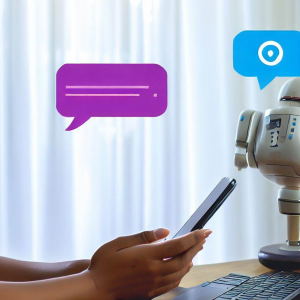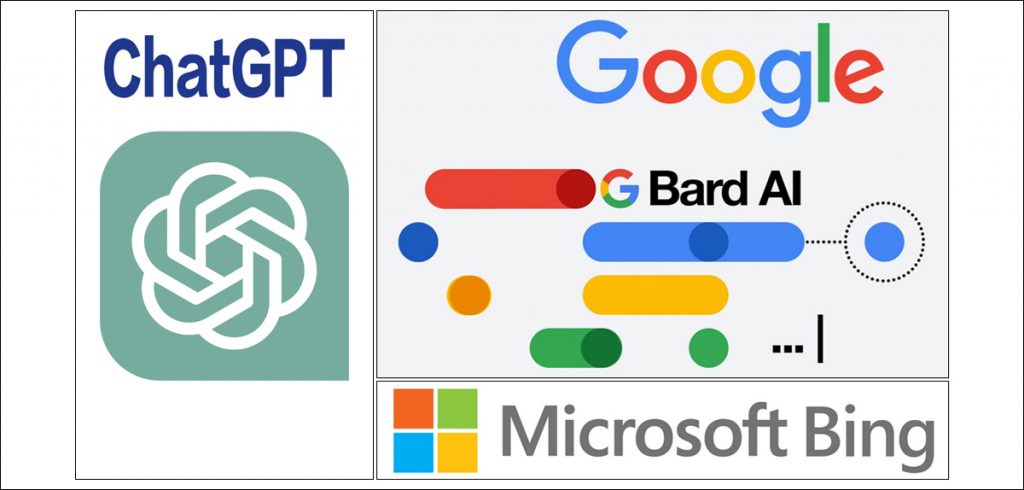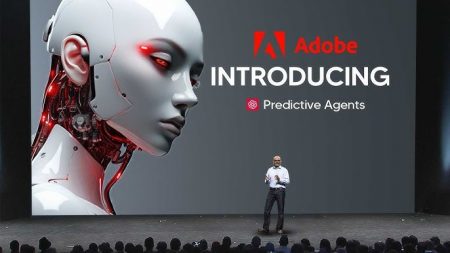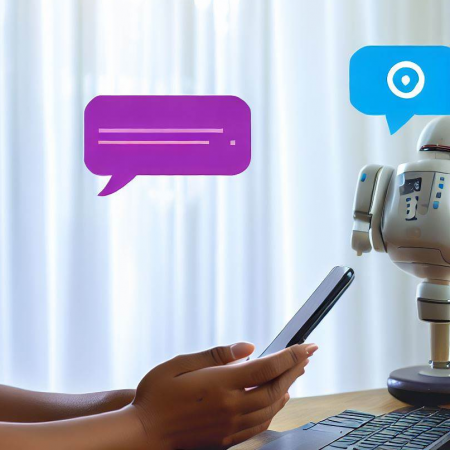With AI based tools developing fast, Uma Iyer looks at what the future may hold for search engines like Bing, Bard et al.
Although the ChatGPT craze has died down, Artificial Intelligence based tools are still in its nascent stages. This article could well be written by the engines making most of the information websites redundant!
Microsoft’s Cortana and Google Assistant including Alexa have already been pioneers in the space of intelligent and coherent responses. While these products were commercial wings, the bigwigs have now started focussing on research based programmes to collect as much data to bring into life what AI movies have been alluding to all along.
There are several AI chatbots and search engines available. Some of them include Google Bard1, Microsoft Bing ChatGPT2, Jasper2, YouChat2, and Chatsonic by Writesonic2
Why are we saying this?
I have put a snippet of the differences from Bing below which is as good as any author written article, however, there are its limitations that are yet to be overcome.
A Simple example on Bing for the differences:
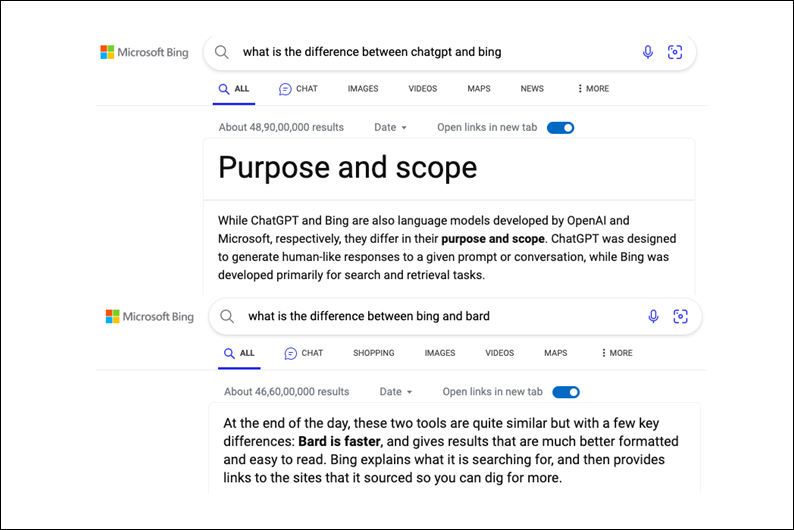
However, see this one where i have put a comparison between more than two tools, and the chatbot gets back into a ‘google search’ mode:

So, with this as a prelude, let’s explore some of the key aspects that many of the chat engines need to work through and the limitations yet to overcome.
Data Sources:
CHATGPT:
| ChatGPT | Bing | Bard |
| In its own words ‘The knowledge cutoff date for ChatGPT used in generating my answers is September 2021. However, I am constantly learning from new data and updates provided by my creators, which can improve my responses and accuracy over time. Nonetheless, my responses are based on my training up until the cutoff date, so some information that has emerged after that date may not be reflected in my answers.’ | The data currentness of Bing varies depending on the type of data you are looking for. For example, Bing’s web search index is updated frequently throughout the day1. However, some data may be outdated or inaccurate due to various reasons such as changes in websites, lack of updates from third-party sources, etc. | Google’s Bard is that it’s open to the internet so information is as current as it is on the internet. |
| This limits the use of ChatGPT however, shows the possibilities with ChatGPTPlus etc. where we will be seeing a lot of innovations. How to use? | The quality of data is highly dependent on the quality of the search query. | The quality of data is highly dependent on the quality of the search query. |
| ChatGPT can be used with chat.openai.com | Bing can be accessed by using Edge browser Bing.com | Not available in India at the moment and will not be able to join the waitlist as well. |
What are our early impressions:
ChatGPT: Although slightly older data, this actually helps content creators and enthusiasts alike on the possibilities and idea generation. I asked ChatGPT the difference between Bard, Bing and ChatGPT. While it was bang on about Bing and ChatGPT, Bard gave an interesting response, while ChatGPT immediately apologised when my next question was ‘Google Bard’ instead. It still did not give me an accurate answer as the data it refers to does not have references to Bard at all!
Initial Response:
Bard typically refers to a poet or a lyricist who writes songs or poetry, especially one who composes verses to be sung or recited in a melodious manner. It can also refer to a poet who performs in public or a poet who recites stories or history.
Renewed response (however, Bard is a poet and poets have their way with words, hence the reference seems relevant!)
I apologize for the confusion in my previous response. To my knowledge, there is no such thing as “Google Bard”. Therefore, let me clarify the differences between Google, Bing, and ChatGPT.
Bing however was pretty intelligent in its responses when asked for differences:
Bing had Creative, Balanced or Precise options:
Bing’s Creative response to Bard was quite Spot on.Bard is developed by Google and uses LaMDA technology, which is a language model for dialogue applications. Bard is free for users who joined the waitlist and are accepted. Bard can access real-time data from Google’s search engine and other sources. Bard is designed to augment Google’s own search tools and provide automated support and human-like interaction for businesses.’
How to use the various chatbots effectively?
ChatGPT can be easily accessed using the link ChatGPT Assistance. (openai.com)
Bing also gave next suggestions on how to use and how to join the waitlist for Bing or Bard. Bing however now has no waitlist.
Whats Next?

ChatGPT is coming up with ChatGPTplus which can be accessed using programmes using OpenAPI. We will investigate this in the upcoming articles.
Google Bard early users have similar benefits to Bing however, which Bard hopefully would integrate with Google’s ecosystem. Alexa and many other programmes may be easily integrated. We had to download Edge in order to get Bing, which is limited but using Bard would be a no-brainer for Chrome users. While Bard has been reviewed as being faster to give results and with clear formatting, Bing’s search references and sources are very helpful.
The war between the AI chatbots has just begun and it will mature over time. Since there is focus and heavy investment, there is a potential to create a massive shift in the way the internet is searched and used, especially user behaviors. Open source code and systems were always the way technology has moved at pace. OpenAI is the way to build machine learning systems gathering data at scale. The view that the investment in research is not to generate immediate profits and that the system is okay to be inaccurate and is okay to fail and use ‘user-interaction’ to learn is an interesting approach which causes a unique research based ecosystem which is refreshing.
In case you missed:
- None Found

